Exploring Alternatives For Treatment Resistant Depression
Depression is a leading cause of disability worldwide. An estimated 5% of adults suffer from this disorder. Over 700,000 people between the ages of 15-29 years of age have depression to blame as a leading to cause of suicide every year. People with depression can exhibit many types of depressive symptoms. Often they will experience mood fluctuations and short-lived emotional responses to situations they face everyday. It can effect people’s daily performance at work, school, and life in general. It is very important to recognize the signs and symptoms as early as possible to acquire the right resources.
Some symptoms of depression may include:
- Feeling sad.
- Feeling irritable.
- Feeling empty and alone.
- Loss of interest in activities.
- Loss of pleasure most days, nearly every day, or for at least two weeks.
- Feelings of hopelessness, guilt, and of virtually no self-worth.
- Thoughts of suicide.
- Disruptive sleep.
- Loss of appetite.
- Loss of energy, weakness, pain, and fatigue.
- Difficulty socializing.
- Difficulty focusing.
- Difficulty functioning at work or school.
Although, there have been proven and effective oral antidepressants to treat depression, not everyone responds to these drugs. There are five major groups of antidepressants.
- Selective serotonin reuptake inhibitors (SSRIs)- these are the most commonly prescribed antidepressants. They are know to cause the least amount of side Some examples would be…Fluoxetine (Prozac), Cipralex, Cipramil, Seroxat, and Lustral.
- Seratonin-noradrenaline reuptake inhibitors (SNRIs)-similar to SSRIs , but designed to be more effective. The jury is still out on that one. Some examples would be…Cymbalta, and
- Noradrenaline and specific serotonergic antidepressants (NASSAs)- these were designed for some people who were unable to take They were thought to cause fewer sexual problems, however were likely to cause more drowsiness at the beginning of treatment . An example would be…Zispin.
- Tricyclic antidepressants (TCAs)- these are a bit of an outdated type of The side effects are more severe and can be quite dangerous if overdose occurs. They often cause weight gain and are not prescribed very often. As an off label treatment, they are also used to treat chronic nerve pain. An example would be…amitriptyline.
- The last two types are Monoamine oxidase inhibitors (MAOIs) and Serotonin antagonists and reuptake inhibitors (SARIs)- these are both older antidepressants which also tend to cause weight gain and are not usually a first choice.
There are often other types of medications that physicians will try that can help with mood disorders. There are mood stabilizers, such as lithium, which acts to block the serotonin “transporter” protein. This protein usually clears away serotonin at the synapse between the sending and receiving cells, but by blocking the transporter , this excess serotonin can can be taken up by the receiving cell. Lithium is rarely prescribed anymore, due to its toxic effects on the thyroid gland and kidneys. There have been other medication that have taken its place that are now used for bipolar disorders.
There are many drugs proven to successfully treat depression, but unfortunately not everyone responds to all of them.
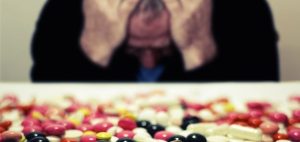
Typically, treatment resistant depression (TRD) refers to anyone who has not responded adequately to at least two different antidepressants from two different classes or groups. Often times, at that point, many psychiatrists will attempt a combination of oral antidepressant medications to work together. If this doesn’t work, these people are often left feeling helpless. These people often feel like they will never escape the feeling they have inside of them.
To ensure that oral antidepressant medications have been given a fair try, they must be taken for 6 to 8 weeks before they fully take effect. Skipping doses will interfere with the effectiveness of the drug. However, a lot of people can experience unpleasant side effects with some of the antidepressants prescribed to them, thus making it impossible to carry forward with the drug.
Treatment Resistant Depression is a fairly common finding in patients with depression . This psychiatric disorder can be seen in 50-60 percent of patients not able to achieve an adequate response to antidepressant treatment. So where do these people suffering from this severe depression go from there?
Do to such an inadequate response to typical treatments, fortunately there have been groundbreaking therapies researched and discovered over the years that’s main focus have been on treatment resistant depression. Exploring the Evidence-Based Benefits of Psychedelic-Assisted Therapy for Depression.
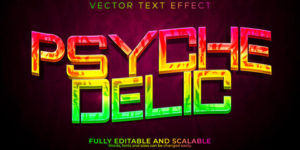
Psychedelic-assisted therapy
Psychedelic-assisted therapy (PAT) is an emerging treatment option for major depressive disorder (MDD), and recent clinical trials have yielded promising results. However, the mechanisms underlying the antidepressant effects of psychedelics remain poorly understood. Here, we review evidence from experimental animal models and human clinical studies suggesting that Psychedelic assisted therapy may exert its antidepressant effects, in part, by modulating serotonin neurotransmission and associated neural circuits. We further discuss how these effects may be mediated by psychedelics’ interactions with serotonin receptors, as well as their ability to modulate activity of the default mode network (DMN). Finally, we argue that a better understanding of the mechanisms underlying Psychedelic-assisted therapy-induced antidepressant effects will facilitate development of more effective treatment strategies for major depressive disorders in the future.
Serotonergic modulation of depression-associated alterations in brain network connectivity . Major depressive disorder (MDD) is characterized by disturbances in emotion, cognition and behaviour that emerge from abnormalities in large-scale brain systems. Although serotonin neurotransmission has long been implicated to play a major role in Major Depressive Disorders pathophysiology, the effects of serotonin on distributed neural circuitry underlying emergent mental states are not well understood. Here, we review evidence from experimental animal models and human clinical studies suggesting that serotonin may exert its antidepressant effects, in part, by modulating activity of distributed brain networks. We further discuss how these effects may be mediated by interactions between serotonin and key neurotransmitter systems, including the norepinephrine and dopamine systems. Finally, we argue that a better understanding of the mechanisms underlying serotonin -induced antidepressant effects will facilitate development of more effective treatment strategies for Major Depressive Disorders in the future.
Rapid Acting Antidepressants
“Rapid acting antidepressants are those that can be taken in the first few days of an acute depressive episode and provide a “rapid antidepressant effect.” Many novel compounds have been developed to treat depression, but none have entered clinical practice as antidepressants. The vast majority of these novel compounds target specific molecular pathways involved in mood regulation, which include serotonin reuptake inhibitors (SRIs), serotonin-norepinephrine reuptake inhibitors (SNRIs), monoamine oxidase inhibitors (MAOIs), tricyclic antidepressants (TCAs) and various norepinephrine and dopamine receptor antagonists. One compound that has been studied is memantine, a cholinesterase inhibitor which U.S. Focuses Treatments resistant depression. Overall, it was well tolerated and had the ability to produce quick results. Rapid-acting antidepressant drug action has been demonstrated in controlled clinical studies for ketamine, a few other NMDA receptor antagonists, and scopolamine. Only some data is available for psychedelic drugs though. The mechanisms of the actions that these drugs provide is still not fully understood. It appears to involvement in AMPA receptor function. Although the effects of ketamine has been reported to be limited, psychedelic drugs have been reported to produce effects for many months.
The Pros and Cons of Using Ketamine, MDMA, LSD, and Psilocybin to Treat Depression Depression is a major problem worldwide, and treatment-resistant depression (TRD) is a significant challenge for clinicians. A number of new strategies are being developed to treat Treatment Resistant Depression, including the use of psychedelics. Psychedelics have shown promise in treating depression, but there are also potential risks associated with their use. This reviews the literature on the efficacy of ketamine, MDMA , LSD, and psilocybin in treating depression, as well as the risks associated with their use. The ketamine-resistant depression (KrD) is a treatment-resistant form of depression that is unresponsive to standard antidepressant therapies. Ketamine resistant depression has been associated with negative side effects, including dissociative symptoms and suicidal thoughts. A number of clinical trials have examined the efficacy of ketamine in treating depression, and the results have been mixed. Some studies have found that ketamine is effective in treating depression, while others have found no benefit. A meta-analysis of clinical trials examining the efficacy of ketamine in treatment-resistant depression found that ketamine was more effective than placebo in reducing depressive symptoms. The review also found that the effect of ketamine on depression was quite promising. The use of MDMA -assisted psychotherapy has shown promise in the treatment of depression, particularly in treating treatment-resistant depression. A number of small clinical trials have examined the efficacy of MDMA-assisted therapy in treating depression, and the results are promising. However, larger clinical trials are needed to confirm these findings. The use of LSD-assisted therapy has also been studied as a treatment for depression. Promise has been shown and more studies will continue in this area. The use of psilocybin-assisted therapy has shown promise in the treatment of depression, with one small study finding that it was more effective than placebo in treating treatment-resistant depression. However, larger clinical trials are needed to confirm these findings. The use of ketamine, MDMA, LSD, and psilocybin in the treatment of depression is a relatively new area of research. More studies are needed to examine the efficacy of these substances in treating depression.
How to Safely Explore Alternative Treatments for Depression: I have found that many people are interested in exploring psychedelic-assisted therapy for depression but are unsure of how to proceed. Here I will provide an introduction to some of the major psychedelics, as well as practical advice on how to safely explore these substances.
The three major psychedelics that have been studied for their potential antidepressant effects are LSD, psilocybin, and ketamine. Each of these substances has a different pharmacological profile and thus produces different effects. It is important to remember that psychedelics are powerful tools and should be used with care. Before exploring any psychedelic, it is advisable to do your research and consult with a qualified mental health professional.
LSD (lysergic acid diethylamide) is a semi-synthetic substance that was first synthesized in 1938. LSD is typically taken orally, although it can also be inhaled or injected. The effects of LSD are variable and depend on factors such as dose, set (the user’s mindset), and setting (the environment in which the drug is used). Generally, the effects of LSD last for 8-12 hours. Commonly reported effects include changes in visual perception, altered sense of time , and increased feelings of euphoria or anxiety. LSD is a non-toxic substance with a relatively low risk of overdose; however, it can produce powerful effects that may be overwhelming for some people.

Psilocybin (4-phosphoryloxy-N, N-dimethyltryptamine) is a naturally occurring psychedelic compound found in certain types of mushrooms. Psilocybin is typically consumed orally, in the form of dried mushrooms or capsules. The effects of psilocybin are similar to those of LSD; however, they tend to be shorter in duration (4-6 hours) and less intense. Psilocybin has been shown to be an effective treatment for depression , with a single dose producing long-term antidepressant effects .
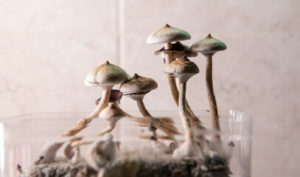
Ketamine ( ketamine hydrochloride) is a synthetic substance that was originally developed as an anaesthetic. It has a wide range of effects, depending on the dose and administration method. At low doses , ketamine produces dissociative effects similar to those of other psychedelics; at higher doses, it can produce hallucinations and out-of-body experiences . Ketamine is also unique in that it can be used to treat depression within a few hours, with a single dose providing relief for up to two weeks. There is no one-size-fits-all treatment for depression, and what works for one person may not work for another. If you have tried multiple different treatments without success, you may be diagnosed with treatment-resistant depression. In this case, it is important to consult with a mental health professional to explore other treatment options.
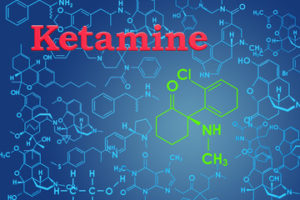
KETAMINE/ESKETAMINE FOR TREATMENT OF DEPRESSION
Ketamine is an anesthetic medication which was first introduced in the 1960s. It has a long history of safe use in humans and is considered to be one of the most effective treatments for depression. Ketamine works by increasing levels of serotonin and norepinephrine, two neurotransmitters that are known to be involved in depression. The drug also blocks NMDA receptors, which may help to reduce symptoms of depression.
Ketamine therapy is usually given as an intravenous infusion, meaning that it is injected into a vein. The medication can also be given intramuscularly, or as a nasal spray. A typical Ketamine treatment for depression lasts for around 40 minutes. During this time, you will be closely monitored by your doctor or nurse to ensure that the treatment is effective and safe.
Ketamine therapy for depression is usually given on an outpatient basis, meaning that you do not need to stay in the hospital overnight. In some cases, however, your doctor may recommend that you stay in the hospital for a short period of time after your treatment so that they can monitor your response to the medication.
Ketamine therapy has been shown to be an effective treatment for depression that is resistant to other treatments. If you have failed to respond to treatment with oral antidepressants or other psychiatric medications, Ketamine therapy may be an option for you. It has been around for decades, but its recent popularity is due to the fact that it’s showing tremendous promise in treating chronic pain and post-traumatic stress disorder (PTSD).
As previously mentioned, Ketamine can also be used as an anesthetic, so it’s no wonder why people are flocking to this alternative treatment. Because ketamine works by causing a state of deep relaxation and euphoria, it is becoming one of the most popular drugs on the market today. In some cases, patients have reported experiencing dissociative anesthesia during injection of ketamine; however, most patients find that they have pleasant experiences during their treatments with this medication.
In Canada, ketamine therapy is not currently an approved treatment for depression. However, clinical trials are underway to test its efficacy in treating this condition. If you are interested in ketamine treatment for depression, talk to your doctor to see if it’s right for you. There are private clinics where you can be referred to within Canada for the IV ketamine infusions. The cost to the patients are generally fairly high. The IV ketamine, not having been approved as a treatment of mood disorders or chronic pain alleviators as of yet are currently only used as “off label” treatments. However, the intranasal Ketamine and esketamine, called SPRAVATO, for treatment of major depressive disorders have been approved since May of 2022 in Canada.
In the U.S., Ketamine is both FDA approved for IV infusions and intranasal sprays. It has shown to improve both major depressive disorders and chronic pain.
Ketamine therapy is so effective because it has a different receptor binding target than most other antidepressants. Most antidepressants on the market today only affect serotonin or norepinephrine reuptake, but Ketamine targets the glutamate neurotransmitter system. This is what helps to create its fast-acting antidepressant effects. Ketamine therapy is a treatment option that is becoming more popular for treatment-resistant depression. It is generally well-tolerated and can produce quick results. There are even an oral FDA approved esketamine based antidepressant available on the market. Often esketamine/ketamine will be taken in conjunction with another oral antidepressant.
Features of ketamine with antidepressant effects:
-Targets serotonin or norepinephrine re-e uptake
-Different binding target than most other antidepressants
-Can produce quick results
-Well-tolerated
Ketamine therapy has become so popular because of its different binding target abilities than most other antidepressants. It has the ability to affect the glutamate neurotransmitter system. Ketamine has an extremely fast-acting antidepressant effect. It also has the option for oral administration.
What is esketamine and how is it different from ketamine?
Eskatamine is the S-enantiomer of ketamine and is one of the two enantiomers that make up the Ketamine molecule. Esketamine has a more potent antidepressant effect than ketamine, however it also has more side effects associated with it such as dissociation and psychotomimetic effects.
Some of the side effects associated with ketamine therapy include dissociation, psychotomimetic effects, and increased blood pressure.
Some of the benefits of ketamine treatment include its ability to produce quick antidepressant effects, its well-tolerated nature, and the option for oral administration. Ketamine is considered to be one of the most promising new treatment options for depression, anxiety, and PTSD.
Other psychedelics that are being researched currently that are showing great promise in treating depression, anxiety, and PTSD – include MDMA, psilocybin, and LSD.
MDMA FOR TREATMENT RESISTANT DEPRESSION, ANXIETY, AND PTSD
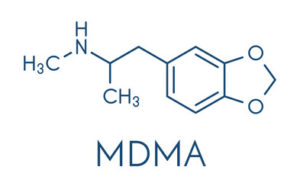
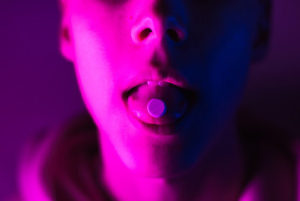
-What is it? -MDMA is a synthetic drug that acts as a stimulant and psychedelic. It is known for its ability to produce feelings of euphoria, empathy, and intimacy.
-What are some of the potential mental health benefits associated with MDMA? Some of the potential mental health benefits associated with MDMA include its ability to reduce anxiety, depression, and PTSD symptoms. Additionally, MDMA has been shown
-How does it work? MDMA works by increasing the activity of serotonin, dopamine, and norepinephrine in the brain. This increase in neurotransmitter activity leads to feelings of euphoria, increased empathy, and decreased anxiety.
-What are some of the side effects associated with MDMA? Some of the side effects associated with MDMA include jaw clenching, nausea, dehydration, anxiety, and dizziness.
-What are the benefits? The benefits of MDMA-assisted therapy include its ability to produce rapid antidepressant effects, its well tolerated nature, and the option for oral administration.
-What is the downside? A major downside of MDMA is that it is a Schedule I substance in the United States, which means that it has a high potential for abuse and addiction.
MDMA is a synthetic drug that acts as a stimulant and hallucinogen. It is thought to work by increasing levels of serotonin, dopamine, and norepinephrine in the brain. MDMA is currently illegal in most countries.
PSILOCYBIN FOR TREATMENT RESISTANT DEPRESSION, ANXIETY, AND PTSD
-What is it? Psilocybin is a naturally occurring psychedelic substance found in certain mushrooms. It is known for its ability to produce mystical-type experiences and hallucinations.
-What are some of the potential mental health benefits associated with psilocybin? Some of the potential mental health benefits associated with psilocybin include its antidepressant effects, as well as its ability to reduce anxiety , fear, and depression.
-What are the risks? The major risk associated with psilocybin is that it can cause psychotic episodes in vulnerable individuals. Psilocybin should also be avoided by people with a history of mental illness or substance abuse.
LSD FOR TREATMENT RESISTANT DEPRESSION, ANXIETY, AND PTSD
-What is it? LSD is a potent, long-lasting psychedelic drug that can produce powerful hallucinations.
-What are some of the potential mental health benefits associated with LSD? Some of the potential mental health benefits associated with LSD include its antidepressant effects and its ability to reduce anxiety levels.
-What are the risks? The major risk associated with LSD is that it can cause psychotic episodes in vulnerable individuals. LSD should also be avoided by people with a history of mental illness or substance abuse.
OTHER FORMS OF TREATMENT FOR SEVERE DEPRESSIVE DISORDERS, ANXIETY, AND PTSD
There are many other different approaches that can be taken when dealing with major depression disorders. One of them is transcranial magnetic stimulation is a treatment that uses magnetic fields to stimulate nerve cells in the brain. This treatment is becoming more popular because it is non-invasive and has very few side effects. clinical trials have shown that transcranial magnetic stimulation can be effective in treating major depression disorders. This treatment is usually done with a device that emits magnetic pulses.
Electroconvulsive therapy is another treatment that is sometimes used to treat major depression disorders. This therapy uses electrical stimulation to the brain and has been found to be effective in treating severe cases of depression. However, this treatment can have some side effects such as memory loss, so it is usually only used as a last resort.
Vagus nerve stimulation (VNS) is a potential treatment for resistant depression. It is minimally invasive and has been shown to be effective in some cases. However, there are potential side effects, such as temporary confusion or memory loss.
Deep brain stimulation (DBS) is a treatment that involves implanting electrodes into the brain. This treatment is usually only used for severe cases of depression that have not responded to other treatments. It can be effective, but there are potential risks, such as infection and stroke.
Is depression and anxiety usually cured?
The short answer is no. There are, however, treatments available that can help to manage symptoms and allow people to lead fulfilling lives. Depression is a chronic illness, which means that it can last for years or even a lifetime. However, with treatment, most people with depression will experience periods of remission (when they are free from symptoms) and recovery (when their symptoms are much less severe).
Will there be any treatment for depression in the near future?
Yes, there are always new treatments being developed and tested. However, it can take many years for a treatment to be proven effective and safe enough to be approved by the relevant authorities. What is the most effective treatment for depression?
There is no one-size-fits-all answer to this question, as different people will respond to different treatments. Some of the most commonly used treatments for depression include antidepressant medication, psychotherapy (such as cognitive behavioral therapy), and electroconvulsive therapy.
What causes treatment-resistant depression?
There is no single cause of treatment-resistant depression. It is thought to be caused by a combination of factors, including genetic vulnerabilities, brain chemistry, and life experiences.
What are the qualifications for treatment-resistant depression?
There is no one simple answer to this question, as different people will respond to different treatments. However, treatment-resistant depression is generally defined as depression that has not responded to two or more courses of treatment with antidepressant medication.
As an Amazon Associate, hearwegogo.com does earn from qualifying purchases.
Many people use meditation as an effective source of therapy for stress, anxiety, and depression. Shop here for a variety of audiobooks, both free and for purchase.
Diffusers with oils in all kinds of relaxing scents can achieve beneficial effects. Buy yours here.
Adult fidget tools are a great way to distract yourself when anxious or just needing to refocus. Buy yours here.
Classic Mandala Art colouring books for anxiety. Buy yours here.
Weighted blankets have also been proven to effectively improve stress, anxiety, ADHD, autism, depression, and insomnia. Buy yours here.
HELP LINES:
If ever you or anyone you know ever needs someone to listen. please call 1-833-456-4566. This line will help anyone in crisis.
You can also text 45645 anytime from 4pm-midnight ET
Kid Help Phone can be reached at www.kishelpphone.ca or 1-800-668-6868
Canadian Suicide Prevention Service “Talk Suicide Canada” can be reached at www.talksuicide.ca or 1-833-465-4566
Naseeha Mental Helpline answers calls from around the world from Muslim and non-muslims. The can be reached at www.naseeha.org or 1-866-627-3342 or 1-866-627-3342.
Youthspace.ca offers free and confidential support and information over rext message and online chat. www.youthspace.ca or 1-788-783-0177
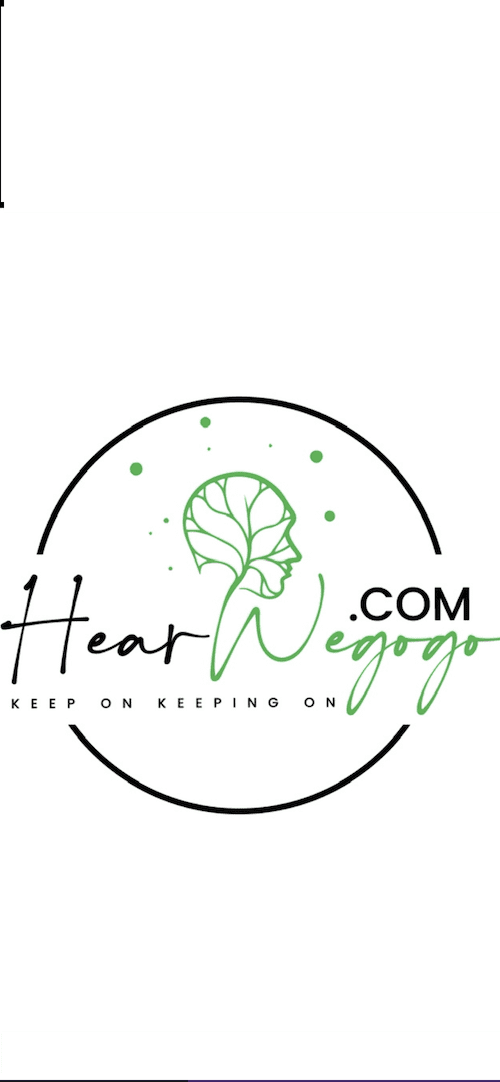


Good Stuff
Thank you!